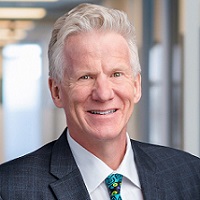 By Nick van Terheyden aka Dr Nick, Principal, ECG Management Consulting
By Nick van Terheyden aka Dr Nick, Principal, ECG Management Consulting
Twitter: @drnic1
Host of Healthcare Upside Down – #HCupsidedown
Have you ever wondered whether your car really needed an oil change at 3,000 miles? That’s the rule of thumb, of course; plus, there’s probably a sticker on your windshield reminding you to change your oil when it reaches that magic number. But the truth is likely quite different, not least because modern cars and synthetic oils have better stamina and can last 5,000 or even up to 15,000 miles, depending on the type of driving you do.
But if you bring your car in for service and the mechanic doesn’t do anything, the auto shop doesn’t get paid. How many times have you heard a mechanic say “everything’s great, come back in 6 months”? Probably never.
Episode NOW on Demand
And so it is with our fee-for-service healthcare model. We pay for things to be done. If you see the doctor and don’t undergo any kind of treatment, there is little or no revenue for the provider and staff. The point of value-based care, by contrast, is to ensure that healthcare providers can make a living while helping patients make choices that will keep them out of the healthcare system.
Gail Zahtz argues that between government mandates and pressure from employers and payers, an industry-wide shift to value-based care is inevitable. But early adopters stand to gain a competitive advantage. “Whether you’re a physician group, a healthcare system, or a lab, you have the ability to negotiate your own value-based contract,” she says. “I don’t think most people realize that you don’t need to wait. It really empowers you, whatever your role is.”
Gail is the founder and CEO of WiseCare Health, an organization that aims to bring equitable, value-based healthcare to everyone. She’s also a single mom and a survivor of late-stage cancer and domestic violence. On this episode she talks about transforming the healthcare system that nearly left her behind. Here are a few excerpts.
Employers may lead the push toward value.
“Over 60% of all employees get their health insurance from self-pay plans, which puts all of the responsibility and ability directly on the employer to say ‘this is working or not working for us.’ And so the employers’ health plan groups are saying ‘we’re not going to wait until it’s mandated by CMS—it makes sense financially, it has better outcomes, and it keeps our employees working because they’re healthier. So we’re going to go and create direct contracts immediately that are the same kind of bundle with quality that you see in government value-based contracting.’”
Value and profit are not mutually exclusive.
“I am all for healthy profit in healthcare. But let’s look at COVID. There was no lack of volume—the hospitals were full. So why did they lose so much money? The people who were in value-based contracts did not. The only ones who made it financially had sustainable contracts. They knew what was coming in, month in and month out, and then could divert funds and save themselves and their employees. Those who were dependent on fee-for-service—which remember, is a transaction—had elective surgeries that got canceled during COVID. When you take away your profitable transactions, and you’re left with your unprofitable transactions, like keeping somebody ventilated for a month, you lose money. So just on a profit basis, we have already seen that you profit more in steady, value-based contracts.”
Primary care holds it all together.
“One of the first steps is to pick a population, own it, and have primary care doctors who wake up every day knowing they are responsible for this group of patients. [Primary care] is the glue of value-based care, and it’s also the glue of a healthy healthcare system. The primary care providers are, in my opinion, the most important piece of improving outcomes and lowering cost. And so now it’s up for us on the business side to recognize it financially. I’ve done the math, and it’s been approved by two actuary teams—you can pay doctors more and still make more profit.”
About the Show
The US spends more on healthcare per capita than any other country on the planet. So why don’t we have superior outcomes? Why haven’t the principles of capitalism prevailed? And why do American consumers have so much trouble accessing and paying for healthcare? Dive into these and other issues on Healthcare Upside/Down with ECG principal Dr. Nick van Terheyden and guest panelists as they discuss the upsides and downsides of healthcare in the US, and how to make the system work for everyone.
This article was originally published on the ECG Management Consulting blog and is republished here with permission.
